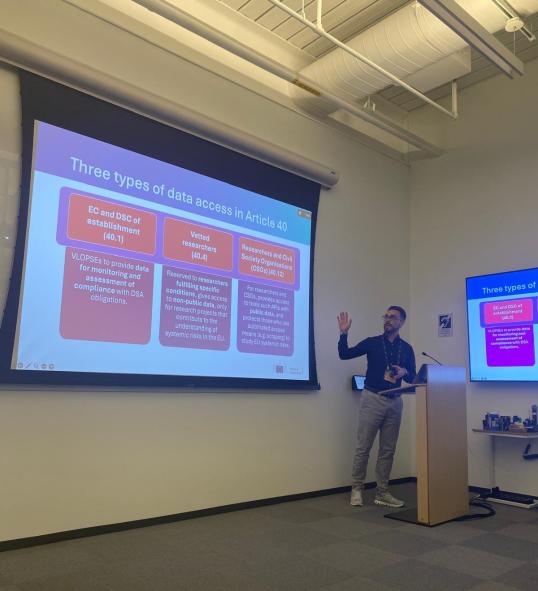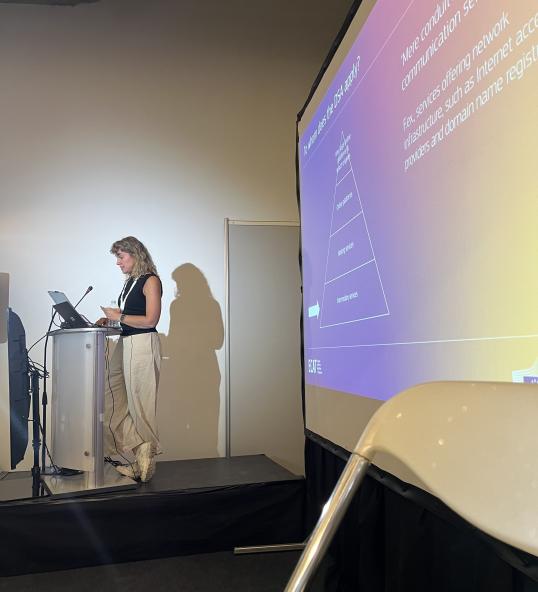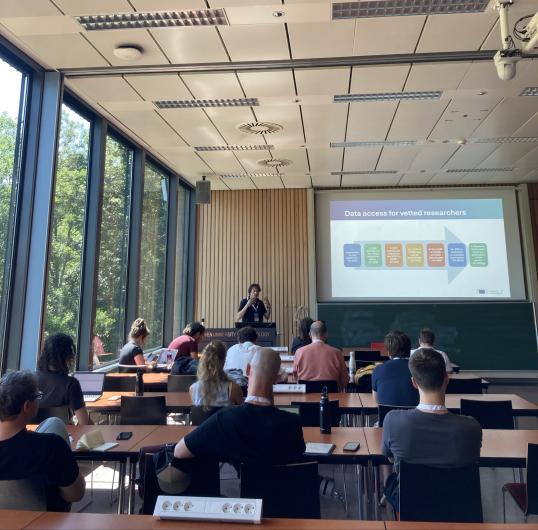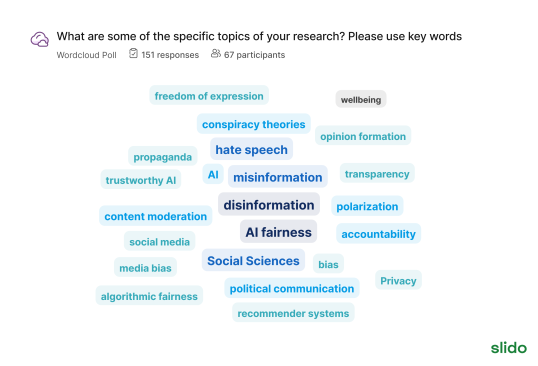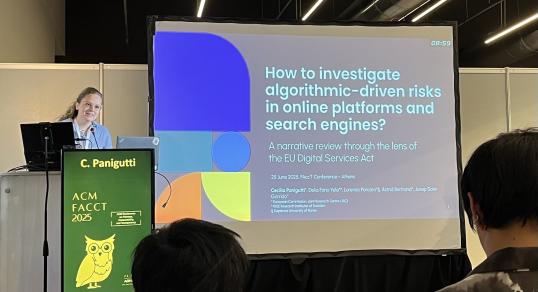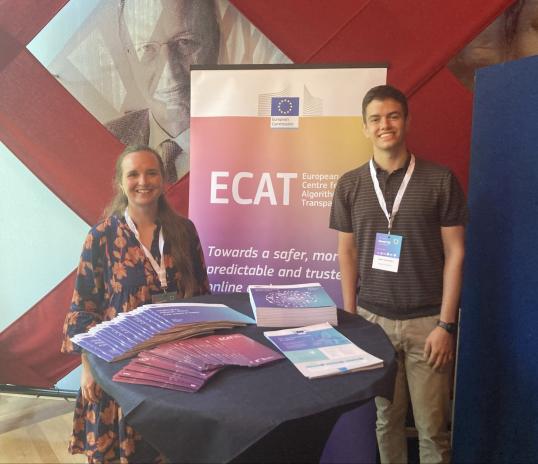As the academic conference season is firmly underway, members of the ECAT team have been taking part with a variety of contributions. One of our aims this year has been to raise awareness of the data access mechanisms in the Digital Services Act (DSA). Under Article 40 of the regulation, researchers who fulfil certain conditions can apply for data from very large online platforms and search engines (VLOPs and VLOSEs) to investigate systemic risks and their mitigations. The details of this process were laid out in a recently adopted delegated act.
Due to the importance of this groundbreaking legislation, and its relevance to many scientific communities, ECAT has been delivering tutorials and interactive sessions at the conferences UMAP, ICWSM, FAccT and EWAF, in collaboration with colleagues in DG CNECT, academia and local Digital Services Coordinators.
The researchers who participated worked on a wealth of topics, such as civic discourse, the mental health of minors, content moderation and disinformation. The engagement with such a diversity of audiences only further reiterated the importance of data access, and the difference it can make to researchers’ ability to investigate the impact of online platforms. It also confirmed our impression from previous large-scale engagement with members of the research community, showing not only that many are interested in making use of data access, but that they will utilise it to shine a light on many different types of systemic risks represented by VLOPs and VLOSEs.
If you are interested in learning more about data access, visit our dedicated FAQs page. We are also participating in more conferences later in the summer, which you can find out more about on our events page.
Research and community engagement
The ECAT team has not only been at conferences to deliver data access sessions. At UMAP, our team member Erasmo Purificato presented his paper GNN’s FAME: Fairness-Aware Messages for Graph Neural Networks, co-authored with colleagues in academia. At FAccT, a paper co-authored by a combination of current and former ECAT members was presented by Cecilia Panigutti, now a case handler at DG CNECT. The paper provides a categorisation of study designs for algorithm audits through the lens of the DSA.
Lastly, we participated in the role as event partners at EWAF. We were delighted to support a conference specifically focused on algorithmic fairness in a European context and appreciated the opportunity to share information about the work of ECAT and the wider Joint Research Centre with the engaged conference audience.
Across all conference activities so far, we are grateful to all collaborating partners and participants who have engaged with our work, and shared information about their own projects. We look forward to the rest of the season, and to increase our collaboration with these impressive communities going forward.
Details
- Publication date
- 4 July 2025
- Author
- Joint Research Centre

